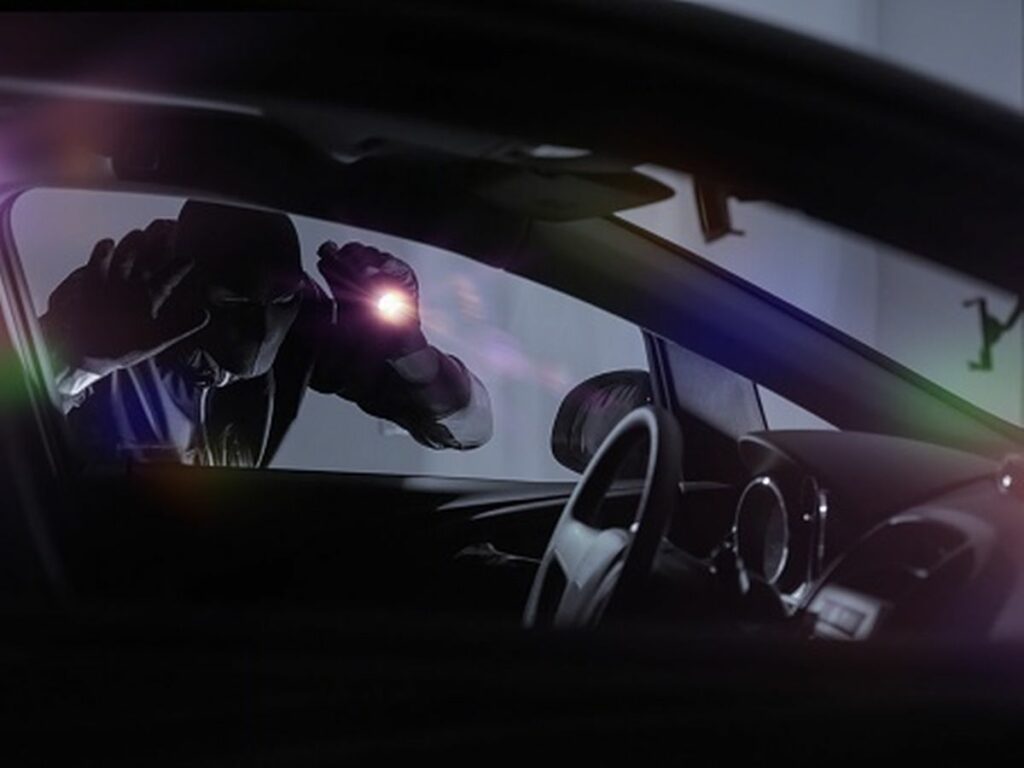Does Car Insurance Cover Theft?

Car insurance may help cover certain types of theft if you have comprehensive coverage, but it won’t cover the personal items you had in it. Your policy can also protect you from the financial burden if your car is vandalized. But, it won’t cover intentional damage or damage caused by a person who is named on the policy.
Comprehensive car insurance helps cover damage caused by accidents that don’t involve colliding with another vehicle or object. It covers damage done to your car by perils including vandalism, falling objects, fire and, yes, theft. While comprehensive insurance is optional, lenders require both comprehensive and collision coverage if you’re leasing or financing your vehicle.
- Theft
- Vandalism, fire, riots, and explosions
- Windshield and glass damage
- Falling trees/limbs and other objects
- Rocks/objects kicked up by or falling off cars
- Storms, hail, wind and lightning
- Accidents with animals (hitting a deer)
If you have comprehensive coverage as part of your policy — yes, this cover car theft. It covers up to the Actual Cash Value (ACV) of your vehicle (market value for your car based on pre-loss condition). If you want insurance coverage for your vehicle, or if your car is stolen, vandalized or damaged by a covered peril, you’ll need comprehensive auto insurance.
Gap insurance is optional add-on car insurance coverage that helps pay off your auto loan if your car is totaled or stolen. In short, it covers the “gap” between the amount owed on a vehicle and its actual cash value (ACV). This type of coverage is only available if you’re the original loan or leaseholder of the vehicle.
Comprehensive coverage consists of deductible and coverage limits. A deductible is the amount of money you pay out of pocket in an insurance claim before the insurance coverage kicks in. Your coverage limit is the maximum amount your insurance company will pay for a covered loss.
For example, your vehicle has a depreciated value of $10,000 and you have a $1,000 comprehensive coverage deductible. If your car is stolen, you file a police report and then file a car insurance claim. If it is a covered claim, your insurer would cut you a check for $9,000 (actual cash value minus your deductible).
For example, your vehicle has a depreciated value of $10,000 and you have a $1,000 comprehensive coverage deductible. If your car is stolen, you file a police report and then file a car insurance claim. If it is a covered claim, your insurer would cut you a check for $9,000 (actual cash value minus your deductible).
If someone breaks into your car, your auto insurance will cover damage to your vehicle. However, auto insurance does not cover theft of your personal items from your vehicle.
If your policy includes comprehensive coverage, it covers the damage done to your car in the break-in. Broken windows and broken locks that might lead up to vehicle theft are covered by comprehensive coverage. However, it does not reimburse the value of the personal property stolen from your vehicle. Instead, personal property coverage that comes with your homeowners’ insurance or renters insurance will cover stolen personal items.
If your policy includes comprehensive coverage, it covers the damage done to your car in the break-in. Broken windows and broken locks that might lead up to vehicle theft are covered by comprehensive coverage. However, it does not reimburse the value of the personal property stolen from your vehicle. Instead, personal property coverage that comes with your homeowners’ insurance or renters insurance will cover stolen personal items.
1. Call the police.
Once you are sure your car has been stolen, contact authorities right away and file a police report. Get a copy of First Information Report (FIR) and send it to your insurance company while applying for a claim. The sooner you call them, the better your chances are of recovering your vehicle.
After contacting authorities, contact your car insurance company. You should notify your insurer no matter what type of auto insurance policy you have, informing your insurer that the car is missing can prevent you from being liable for damages the car may incur by the thieves. Details about your car will help expedite the claims process with your insurer:
Once you are sure your car has been stolen, contact authorities right away and file a police report. Get a copy of First Information Report (FIR) and send it to your insurance company while applying for a claim. The sooner you call them, the better your chances are of recovering your vehicle.
- The Vehicle Identification Number (VIN) and the license plate number. Find this information on your vehicle title, insurance card, or other insurance documentation. If you can’t find it, ask your insurance provider.
- The year, make and model of the car
- The place and estimated time of the theft
- Any other identifying marks of the car, such as bumper stickers
After contacting authorities, contact your car insurance company. You should notify your insurer no matter what type of auto insurance policy you have, informing your insurer that the car is missing can prevent you from being liable for damages the car may incur by the thieves. Details about your car will help expedite the claims process with your insurer:
- Contact information of your leasing or financing company, if any
- Description of your vehicle Information on the last known whereabouts of your vehicle
- List of personal items that were in the car at the time of the theft
- Location of all of the keys to the vehicle
- Title for the vehicle
Confused about your car insurance policy or are you looking for affordable car insurance coverage? Let us help you conduct a car insurance policy review. Contact us at 833-817-7285.




